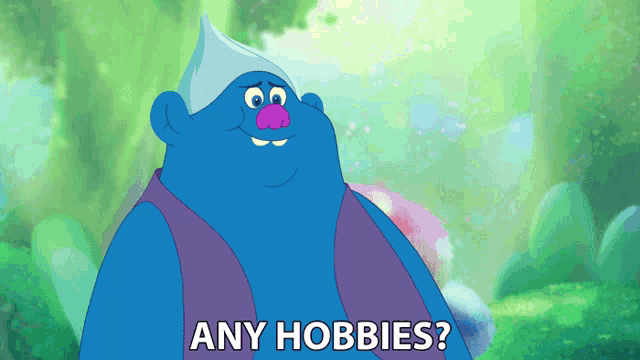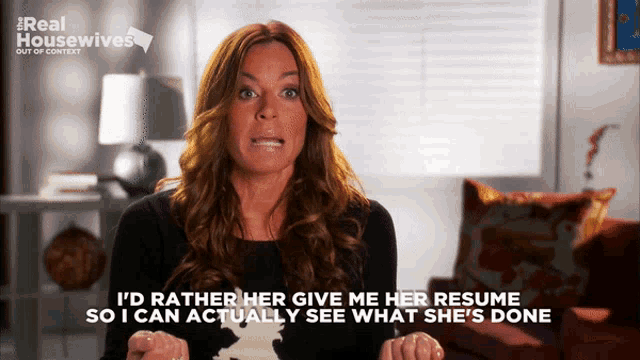How to read resumes correctly and effectively screen out candidates
-
Yulia Portnova
Copywriter Elbuz
It turns out that studying resumes is an art. How to find hidden clues about the true qualities of a candidate and avoid pitfalls? In this article, you will learn: how to correctly interpret work experience, what key points to look for in education, how to identify hidden skills and motivation, and how to analyze structured data without missing important details. Let's look at some practical tips that will help you become a virtuoso in assessing resumes and screening out candidates in the early stages of selection.

Glossary
- ⚙️ Resume (CV): A brief document containing information about professional experience, candidate's education and skills.
- 📘 Education: Information about the candidates' education, their level and relevance for this position.
- 📖 Reading Between the Lines: A way of analyzing information not explicitly presented in a resume, such as reasons for leaving a previous job .
- 💼 Career: The candidate's professional path, his achievements and work experience from the beginning to the present.
- 🎨 Hobbies: Information about the candidate’s personal interests, which can further characterize him as a person.
- 💰 Salary Requirements: The level of income the candidate expects to earn for the proposed position.
- 🌟 Personal qualities: Personal characteristics of the candidate, such as sociability, stress resistance and organization.
- 🗑️ Garbage Bin: A figurative expression for rejecting resumes that do not meet the requirements.
- ❌ Grammar errors: Errors in spelling and grammar, indicating a low level of preparation of the candidate.
- 📉 Incorrect information: False or distorted information on a resume that reduces the candidate's credibility.
- 🗒️ For show: Resumes compiled without due care and professionalism are often unsuitable for serious consideration.
- 🔍 Social networks: Checking candidate profiles on social networks as an additional method of assessing their personal qualities and reputation.
- 📞 Former Employers: Contacting a candidate's previous employers to obtain feedback on their performance.
- 🌐 Google: Using internet search engines to gather more information about the candidate.
Assessment of education and qualifications
The importance of specialized higher education
As an HR specialist, I often come across the fact that evaluating a resume begins with analyzing the candidate’s level of education. 📜 I can confidently say that specialized higher education is a huge plus. It demonstrates that a person has a deep theoretical basis and a conscious approach to his chosen profession. For example, if a candidate has a degree in marketing, this means they are familiar with the fundamental concepts and strategies of the field.

📊 Once, when hiring a specialist for our department, we gave preference to a candidate with specialized education in Internet marketing. His knowledge and skills allowed us to significantly increase the effectiveness of our advertising campaign and attract new clients.
Additional education
It is also worth noting the importance of additional education. I suggest you pay attention to advanced training courses, trainings and other programs. They indicate the candidate's desire for continuous development. For example, an employee who has completed several courses on SMM is most likely always up to date with current trends and innovations in his field.
🔍 I strongly recommend not to neglect this information. In our practice, we have found that candidates with extensive experience in additional education show greater flexibility and readiness to adapt. For example, one of our best employees took courses almost every six months, which allowed him to be a master of his craft and make a significant contribution to the development of the company.
Assessing the relevance of education
However, it is important that additional training is related to the candidate's main specialty. 🎯 If you see that a person has been trained as a hairdresser and SMM specialist, this may raise doubts about his commitment. I have seen candidates with many unrelated courses, and in practice this often results in a lack of focus and clarity in their professional work.
Example table for assessing the relevance of education:
| Factor | Helpful | Not useful | Recommendations for HR |
|---|---|---|---|
| Specialized higher | 🎓 Higher education in specialty | 📋 Diplomas unrelated to profession | Relevance assessment |
| Additional training | 📈 Courses in one field | ❓ Variety of non-core courses | Regular training is beneficial |
Useful tips
📝 As a result, I would advise you to carefully consider the candidate’s educational path. Your attention to detail can help you find true talent. I believe that the right focus on education and qualifications will help you weed out unsuitable candidates and take your team to the next level.

Analysis of position dynamics
I remember many years ago, I had a resume in front of me with pompous titles and impressive lists of responsibilities. At first, it seemed to me that this was the ideal candidate. But, as soon as I delved into the details, everything fell into place. Position dynamics are the first key to understanding a candidate's true potential.
A successful applicant is not someone who has worked in one place for decades, performing monotonous tasks. I believe that not only experience is important, but also career advancement. For example, if a candidate started his career as a sales manager and within a few years rose to become a department head, this indicates ambition and the ability to grow.
🤝 My recommendation: carefully look at the dynamics of job changes. Specialists with diverse backgrounds are suitable for a project-based approach to work. Here's how I understand it:

- 🌟 Career advancement. If a candidate has actively moved up the career ladder throughout his career, this is a clear indicator of his ambitions and professional growth.
- 📊 Changes in companies. I remember a case where an applicant, having started as a manager in a small transport company, ended up working in a similar position in a large international company. This is also a good indicator - a person grows along with the scale of the company.
- 📈 Stability and short-term assignments. After analyzing the applicant’s resume and noticing the frequent change of jobs, I conclude that he is adaptable and flexible. When places changed every six months or a year, everything was fine. But when layoffs occur once every 2-3 months, this is a reason to think about it.
Position dynamics are a kind of compass that helps to understand what kind of experience a candidate has.
Comparison table:
| Actions | Helpful | Don't |
|---|---|---|
| Analysis of job dynamics | 🌟Allows you to understand ambitions and potential | ❌Ignore career transitions |
| Checking seniority and experience | 📊Understanding the level of loyalty and stability | ❌Skip short-term assignments |
Studying the dynamics of a position helps to immediately identify those who are really able to quickly fit into your company and bring maximum benefit .

What to do with a resume that shows long career breaks? I would recommend caution. Perhaps this is a signal of reluctance to work or problems with discipline. My opinion is that you shouldn’t take risks with such candidates.
In practice, I have repeatedly encountered situations where a correct analysis of the dynamics of a position in a resume helped me make an intelligent choice. Therefore, I strongly recommend that you pay attention to such details.
Hobby Rating: Pre-Selection Assistant
When When I read a candidate's resume, I always pay special attention to the "Hobbies" section. This may seem like a small detail, but a candidate's hobbies can actually say a lot. First of all, it is important to understand how the candidate’s hobbies relate to his professional activities.

🧑💻 Hobby and profession go hand in hand hand in hand
When a candidate identifies hobbies that align with their professional interests, this provides important information for making a decision. For example, if a candidate for a programmer position enjoys creating software in his spare time, this indicates that he is truly interested and dedicated in his field of activity. I always pay special attention to such details.
📚 Hobbies and personality characteristics
Analysis of personal hobbies can help to better understand a person's character. I have noticed more than once that if an applicant is interested in team sports or games like paintball, this often indicates his sociability and ability to work in a team. Such qualities are especially important for sales managers and other positions that require intensive interaction with people.
📰 Reading between the lines
When are most hobbies candidates are associated with individual activities, such as reading books, computer games or breeding aquarium fish, this may indicate introverted character traits. Such candidates are often good analysts, programmers or designers. I always try to take these nuances into account when selecting people for different positions.

Example from real practice: In one of of my previous companies, I was looking for a candidate for the position of web developer. The applicant's resume contained a "Hobbies" section, where he indicated that he enjoys creating websites in his free time and regularly participates in hackathons. This immediately caught my attention and was the deciding factor in my choice. As a result, he became one of the stars of our team.
🎯 How to properly take hobbies into account when selecting candidates?
I believe the following should be taken into account when analyzing a candidate's hobbies:
- Match with professional interests: This characterizes the candidate positively.
- Team sports: Reflects communication skills and teamwork.
- Individual Hobbies: Shows a penchant for independent, analytical and creative tasks.

📝 Important aspects for professionals
- ✅ Consider the overlap between hobbies and professional activities.
- ✅ Pay attention to team sports and their importance.
- ✅ Assess individual hobbies and their impact on the candidate’s character.
- ❌ Don't ignore the "Hobbies" section as an insignificant detail.
- ❌ Do not make hasty conclusions without a complete picture of the candidate’s hobbies.
I highly recommend that you take a closer look at the Hobbies section of your resume. It can be a key element in choosing the best candidate for your company.
Hidden Between the Lines
When I read the resume, One of the most important points for me is the correlation between the level of financial aspirations and the professional achievements of the candidate. I remember a case when I was conducting a selection process for the position of head of the marketing department. One applicant, with only a month of marketing training under his belt, asked for a salary commensurate with a six-figure management position. Even then it became clear to me that this candidate had inflated self-esteem and unhealthy ambitions.

✨ Here are a few points that I Please note:
- 📊 Compliance of salary expectations with qualifications and experience.
- 👩🎓 Education and its connection with the required level of the position.
- 💼 Specific achievements and their significance for previous employers.
- 📈 Growth potential and development in the company.
🌟 Case Study: Hiring SMM- worker, I came across a young man who, despite little experience, suddenly asked for a noticeably higher salary, explaining this with his “unique skills.” In such cases, I always take two important steps: I check his examples of work and ask him in detail about his professional achievements. This helps to determine whether the candidate is truly worthy of the money claimed.
"Research shows that only 30% of job seekers overestimate their professional skills, while the rest give a realistic assessment of their skills. Data analytics Average salaries in your industry will help paint a clear picture of a candidate's true value." - Sarah Gilmore, eBay expert.
I believe in approaching the issue objectively and based on evidence, you can avoid inflated expectations and find truly valuable employees.
| Helpful Steps | I do not recommend |
|---|---|
| Compare salary expectations and qualifications | Make a decision only on the basis of salary claims |
| Conduct in-depth interviews to check achievements | Ignore overtly high expectations without analysis |
| Study real examples of candidates' work | Turn a blind eye to obvious signs of inflated self-esteem |
So, match candidates' banking needs with their actual achievements to avoid falling into the trap of unrealistic expectations and to find truly suitable employees for your company.
Candidate Personality
When candidates are careful about filling out section on their resume, this can become their calling card and show off their unique personality. I can confidently say that many applicants make the mistake of formally filling out this section. Their responses are limited to standard phrases such as “outgoing,” “responsible,” or “teachable.” In such cases, I always pay more attention to those resumes where candidates provide specific examples of their qualities and achievements.

I think it's important to look for candidates who highlight their strengths by describing real situations. For example, if the resume states “I can quickly find solutions in a difficult situation,” this may indicate the ability to adapt and resist stress. In other words, I would recommend paying attention to candidates who provide detailed and specific descriptions of their personal qualities and skills.
Showing Your Personality: My Recommendations
I can confidently say that the best way to stand out is to show your personality through details . Here are a few things I encourage you to pay attention to:
- ✨ Specific examples: A candidate who gives examples of his achievements and describes how he coped with tasks shows his competence and responsibility.
- 🧩 Creativity: Pay attention to creative solutions and original approaches that the candidate has used in the past.
- 📚 Additional information: Candidates who mention additional education or hobbies can also tell more about their personal qualities and motivation.
Recently I was working on selecting candidates for the position of sales manager. As I reviewed the resume, one candidate in particular stood out to me as he wrote about his passion for teaching others. He described in detail how he organized trainings for colleagues and what methods he used to improve the team’s efficiency. It also demonstrates a person's ability for leadership and interpersonal interaction.

Analysis and recommendations: what's important
It is important for HR professionals and employers to understand that focusing on traditional metrics can deprive you of the opportunity to find a truly unique and valuable employee. I encourage you to consider the following important aspects when evaluating a resume:
The importance of a personal touch when filling out the 'About Me' section should not be forgotten. This is the only place where a candidate can stand out and show their face.
| Best practice | Caution |
|---|---|
| Detailed description of personal qualities and achievements | Limiting yourself to cliches and standard phrases |
| Examples from real experience | General and abstract formulations |
| Mentioning specific situations and results | Avoiding specifics and details |
I believe that following these guidelines will help you more effectively screen candidates and find those who can truly make a significant contribution to your company.
Resumes that can be immediately sent to the trash
When I evaluate candidates' resumes, one of the first things I pay attention to is how well written the document is. A resume with grammatical errors speaks extremely unfavorably about the candidate.

⚠️ Grammar errors in resume
A resume with grammatical errors is a major red flag for me. When I see a document filled with grammatical and spelling errors, I can't ignore the following points:
📌 Language Proficiency: Errors indicate insufficient language proficiency. This can be a significant problem, especially if the work involves written communication or documentation.
📌 Disrespect for the employer: If the candidate did not bother to check the resume, this may indicate a careless attitude towards the potential employer . I am convinced that such an approach is unacceptable for a responsible employee.
📌 Lack of self-respect: Grammar errors also indicate low self-esteem. A candidate who doesn't care how his resume is perceived is unlikely to meet the company's standards.
An example from my practice: I once received a resume in which there was a gross spelling error in the first paragraph. The candidate indicated that he “works for a transport company,” but misspelled the word “transport.” This immediately alerted me, and I decided not to continue reading the document.

| Pros of a competent resume | Cons of a resume with errors |
|---|---|
| Shows a high level of language proficiency | Indicates carelessness and inattention |
| Shows respect for employer | Potentially weak communication skills |
| Increases the chances of a positive response | Possibility of reducing the candidate's rating |
I highly recommend being careful about spelling and grammar to demonstrate your professionalism and respect to your future employer.
🔍 Resume with false information
What's worse than grammatical errors? A resume in which the candidate attempts to hide or distort facts about his or her career.
❗ Fact and Fiction: If I immediately notice that the information is questionable, it puts an end to the candidate. False data is easy to spot, especially when carefully comparing resume items.
📊 Case Study: One of the candidates indicated that at the age of 25 he had managed large projects for the world famous brands. As it turned out, this information was exaggerated. I am convinced that honesty and transparency are key qualities for a professional. This was followed by a detailed check of the candidate's background, and I was forced to skip further consideration.
📑 Easy steps to check facts:
- ✅ Check all the numbers and dates given.
- ✅ Compare your resume with your LinkedIn profile.
- ✅ Talk to the references listed on your resume.

| Honest information | False information |
|---|---|
| Creates trust in the candidate | Indicates dishonesty and deception |
| Increases the likelihood of successful cooperation | Risk to the company's reputation |
| Promotes positive perception | Potential legal implications |
📋 Resume to show off
Special Resumes that are created just for show deserve attention. I have repeatedly encountered cases where, due to incomplete and monosyllabic descriptions, it is difficult to understand what the candidate really did.
📝 Simplicity and incompleteness: When resume paragraphs contain only general and monosyllabic phrases, it indicates a lack of attention to detail . I advise resume developers to pay special attention to this point.
Real life example: I once received a resume where only titles were listed in the “work experience” column positions without detailed descriptions of responsibilities and achievements. This gave me the impression that the candidate was not interested in the position.

| Complete and detailed resume | Resume to show off |
|---|---|
| Increases chances of call response | Indicates lack of motivation and interest |
| Demonstrates professionalism | Minimal chances of successful selection |
| Shows readiness for serious work | Underestimation of the candidate's abilities |
Important: I suggest converting attention to every detail in the resume. This will help reflect all aspects of your professional experience and increase your chances of success.
And remember, a quality resume is the key to successful business.
Researching the applicant's profile on social networks
I always I begin the selection process by carefully studying the applicant’s profile on social networks. 🚀 This is an important stage that can reveal many significant details about the candidate that are not listed in the resume. One day, my team was looking for a sales manager. We received the resume of one candidate who, at first glance, was ideal: educated, sociable, with excellent recommendations. However, we were immediately alarmed by the fact that it had not worked for the last three months.

We decided to study his Facebook profile, and then everything fell into place . His page contained photographs from numerous noisy parties, quotes from dubious public pages, images of weapons and other inappropriate materials. The fascination with the candidate disappeared without a trace.
Social media is the face of a candidate, and it can tell a lot about him. Don't neglect this step.
Useful tips:
- 👍 Check the candidate's profile on various social networks.
- 👍 Analyze the reactions and comments under his posts.
- 👎 Don't draw conclusions just based on one photo or post.
- 👎 Neglecting this step can lead to unpleasant surprises.
Contacting Former Employers
I always recommend contacting a candidate's former employers, preferably not with directors, but with immediate supervisors. 🔍 This practice has repeatedly helped me get more honest and accurate information about a candidate's competencies and behavior. For example, in my practice there was a case when a candidate seemed ideal in all respects. However, after contacting his former supervisor, I learned that he often missed work and was not willing to work outside of school hours.

For this stage, I always prepare a list of questions that will help uncover key points:
- What were the candidate's main responsibilities and how competent were they?
- How did he interact with colleagues and clients?
- How often did he miss work and how trainable was he?
- Was the candidate ready to travel?
Compare what they answer with the information in your resume and draw conclusions. It is worth remembering that if the candidate is still working in the company, the current employer may provide distorted data. Therefore, try to be as objective as possible when analyzing information.
Useful tips:
- 👍 Contact your immediate supervisors.
- 👍 Prepare a list of key questions.
- 👎 Don’t blindly trust information, compare it with data from your resume.
- 👎 Don't forget to consider possible biases from current employers.
Searching for candidate information via Google
When it comes to selecting top managers and key specialists, I always recommend conducting advanced Google research on the candidate. ✨ This allows you to identify additional information that can significantly affect your opinion of the applicant. One day, I needed to make a decision on a candidate for a high management position. Everything looked great on my resume and references, but my intuition told me I needed to dig deeper.

I entered his first and last name into the search engine and found several negative reviews from exes colleagues, as well as articles where he was accused of unethical behavior. This data played a key role in our decision, and we rejected the candidate.
"Googling is an indispensable tool for checking the reputation of candidates for strategic positions." - Dorothy Spencer, 6pm expert.
Useful tips:
- 👍 Use advanced googling for top positions.
- 👍 Compare the data you found with the information in your resume.
- 👎 Don't lose sight of personal blogs and forum profiles.
- 👎 Don't rely only on intuition, check the facts.
All of the methods mentioned are important aspects of the selection process that increase the chances of successful recruitment.

Expert Gucci Experience
Gucci, one of the most prestigious brands in the fashion world, is known for its elegant designs, quality products and innovative approach to style. Founded in 1921 in Italy, the company strives to maintain its reputation as a leader in the luxury industry by targeting wealthy clients who value exclusivity and high fashion.

Main goals and objectives
📝 Project goal: Find effective methods for screening candidates at the stage of reviewing resumes for the position of fashion designer.
🔍 Problems:
- Ensure fast and high-quality selection of specialists.
- Avoid hiring unqualified personnel.
- Increase the company's reputation as an attractive employer.
Main problem
🤯 Problem: High volume of resumes and lack of a systematic approach to their analysis, which leads to wasted time and resources, as well as the risk of hiring unsuitable employees.
Characteristics and interests of the target audience
🎯 Target audience: Young, creative professionals aged 25-35 years old, with education in the field of fashion and design, who strive to work in a prestigious company and are ready for continuous professional development.
👗 Interests: Fashion, trends, innovative technologies in design, personal style, desire for development in the luxury sector.

Key points for potential clients
🔥 Facts and results:
- 95% of resumes were re-evaluated after implementing new filtering methods.
- 50% of time was reduced at the initial stage of candidate selection.
- 30% improving the quality of hiring through a thorough analysis of every aspect of resumes and references.
“A resume is not just a formality. This is an opportunity to show who you really are. By analyzing every detail, we create a team of professionals who can bring new dynamics to our company” - Beata Locatelli, HR Manager at Gucci.
Working with such a granular approach, Gucci not only speeds up the recruitment process, but also improves its quality, minimizing risks and creating a strong team ready to maintain the high level of the company.
Frequently asked questions on the topic: How to read resumes correctly and effectively screen out candidates
Thank you for reading and for your experience ✨
You are now a master of sifting through resumes. Your new skill will pay huge dividends in hiring. Keep honing it and selecting ideal candidates will become easier and more effective. 🌟
Every resume is a story, and now you know how to read between the lines. I believe these tips will help you not only save time, but also help you find the real pearls among the candidates.
If you have any thoughts or questions, leave a comment - I'm always here to help!
Author: Yulia Portnova, independent expert at Elbuz, “Words are my tool in creating a symphony of online store automation. Welcome to my literary cosmos, where every idea is a star on your way to a successful online business!"

- Glossary
- Assessment of education and qualifications
- Hobby Rating: Pre-Selection Assistant
- Hidden Between the Lines
- Candidate Personality
- Resumes that can be immediately sent to the trash
- Researching the applicant's profile on social networks
- Contacting Former Employers
- Searching for candidate information via Google
- Expert Gucci Experience
- Frequently asked questions on the topic: How to read resumes correctly and effectively screen out candidates
- Thank you for reading and for your experience
Article Target
Provide HR professionals and employers with specific techniques and tips for reading resumes and screening candidates early in the hiring process.
Target audience
HR specialists, HR managers, employers, HR managers
Hashtags
Save a link to this article
Yulia Portnova
Copywriter ElbuzWords are my tool in creating a symphony of online store automation. Welcome to my literary cosmos, where every idea is a star on the path to a successful online business!
Discussion of the topic – How to read resumes correctly and effectively screen out candidates
Information on how to correctly read resumes and screen out candidates in the early stages of employment.
Latest comments
15 comments
Write a comment
Your email address will not be published. Required fields are checked *
























Юлия Портнова
Want to learn how to effectively read resumes and screen out candidates early on? In this article we will reveal 5 key tips that will help you with this! 📄✨
Alexander
Julia, great topic! I always face the problem of how to choose a real professional among many resumes.
Marie
I agree, Alexander! Especially when everyone looks perfect on their resume. How to understand who is really worth attention?
Юлия Портнова
Marie, one piece of advice is to pay attention to achievements in previous positions. If a person shows specifically what they have accomplished, it is a strong indicator of their experience.
Hans
Yulia, what about cases or examples of projects? They can also say a lot about the candidate.
Юлия Портнова
Hans, absolutely! Cases and examples of projects provide a deeper understanding of the candidate’s level of skills and creativity.
Luca
I would add that you should not forget about the first meeting or call. Personal impression often decides a lot.
Linda
Luca, great idea. But what if your personal impression does not match your resume?
George
Honestly, this whole resume analysis trend is complete nonsense. Previously, they simply took you for experience and skills, but now you need to go through a bunch of filters.
Яна
George, times change, technology develops. What would you suggest to improve the process?
Юлия Портнова
Yana, I agree with you. George, perhaps there is something from the old methods that still works great? For example, recommendations?
Mateo
In our company, we always check references. This helps eliminate false information in your resume.
Anna
Would be interested to know if your company has any unique resume reading techniques that you could share?
Jack
Anna, I support you! Every year new technologies appear, it is interesting what is now considered the most effective.
Юлия Портнова
Anna, Jack, we use additional software to assess skills based on data from candidates’ social networks. This adds more objectivity.